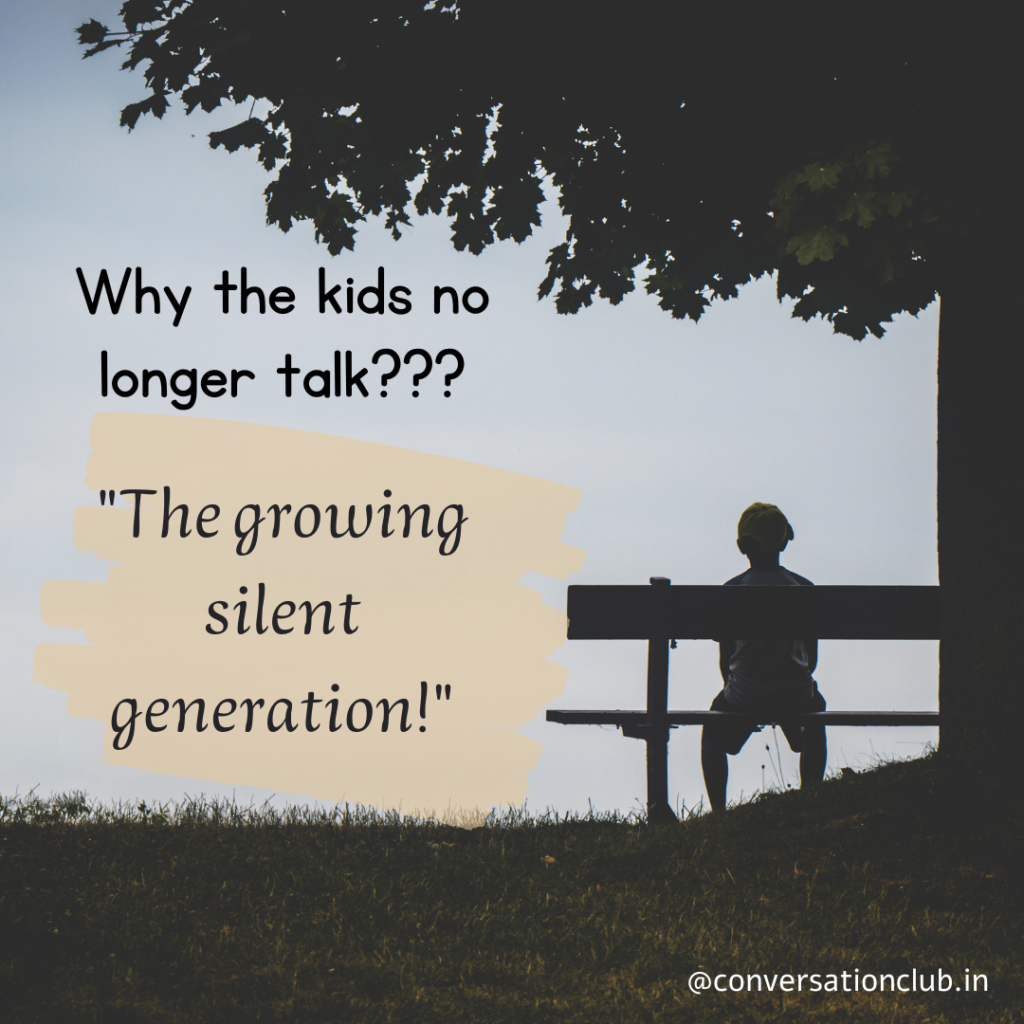In this era of DMs and snap chats, getting more than a ‘ya’ or ‘I don’t know’ or ‘whatever’ from a kid has become a gruesome task for parents. We’ve entered into a complicated schema of communication, where a child barely uses a legitimate structured sentence to express feelings or even answer a simple question like ‘why won’t you eat dinner with everybody at the dining table?’
Parents are simply getting frustrated over slangs and broken sentences. Children are no longer used to the idea of making a proper sentence, which answers the question. Try asking a 13 year old about her friends at school. One of the following responses is to be expected:
- Complete silence coupled with a condescending look
- Confused stare and few garbled vowels
- Absolute ignorance
- Intense look into the screen of the nearest available gadget
- Exit from the interrogation room
What happened to the power of actual words?
Gone are the days when children used to go out and play with neighborhood friends. The times of endless discussions are a bygone era. In the current reality, hashtags and trending memes rule the communication pattern. In fact, friends and classmates are no longer a safe zone. Say something out of the ordinary and you are given a tag. From ‘nerdy’ to ‘weirdo’, all kinds of labels hover around and disrupt all communication channels.
Reasons why kids don’t interact:
- The broken bond with words – Owing to the inability to communicate, kids are not able to express themselves. This inability to properly put their feelings into words leads to complete seclusion.
- The growing competition & academic demands – Thanks to the ever increasing need to be better, we are nurturing book worms and cramming experts. The art of verbal communication and practical approach to living is dying in the process.
- Defective communication channels – Children have been away from heartfelt discussions and easy conversations for so long that they no longer know how to express.
- Veiled embarrassment & the fear of making mistakes – Children struggle, however they are too embarrassed to ask for help. It is fear of getting exposed as a loser that prompts isolation.
- Scared of the reaction – Another communication challenge is the fear of possible response. It is anticipation of intense criticism that forces these young ones to go in their shells.
Provide a channel that promotes communication!
Communication cannot be forced. In fact, if we as parents / guardians / mentors ask too many questions, complete shutdown is the counter weapon. What is needed in this case is availability of a safe space to express and connect. Children are struggling with their inability to perform, to make friends, to overcome hurdles. If we in such cases force rules, that’ll only increase the gap. It is only through patience and persistence that we can encourage them to open up. At Conversation Club, we offer a warm and encouraging channel to learn and express. We welcome them to a space where they interact, open up and learn.


Add a Comment